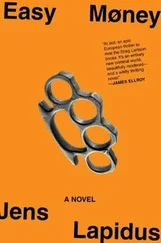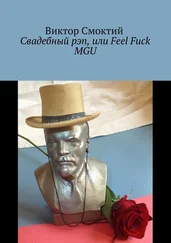“I guess you could say that. But we mostly practiced with guns for fun down there.”
“Cool. You can get tricked by all that stuff, right? You watch a bunch of American movies where they do all those weird grips. Holding the gun sideways in your hand like it doesn’t weigh anything.”
“Yeah, I know, that doesn’t work.”
“It doesn’t work for shit.”
“Yep. That’s Hollywood stuff. You get lousy accuracy with a grip like that. Your whole hand shakes with every shot, like on some senile fuck. It’s kind of like running. You see them do that all the time in those flicks, too. They run and shoot. But everyone who’s been around at all knows that doesn’t work.”
“You gotta practice. What kind of heat did you guys pack?”
Niklas wasn’t really supposed to talk about that stuff. He tried to steer the conversation in a different direction. “I don’t really remember. But hey, you got a girl these days?”
“How can you not remember what gun you had? Come on.”
It was a matter of honor. Some stuff you just didn’t babble about to people on the outside: the arsenal, where you’d done assignments, who the other guys in the company were—and how many people you’d killed. Even if you quit a private army, you had to stick to the rules. The vow of silence was valid until death did you part. Niklas would never leak. He wasn’t the type. Why couldn’t Benjamin just accept that?
Benjamin eyed him.
Niklas was short: “You just don’t talk about that stuff, is all.”
Benjamin’s eyes narrowed. His brow furrowed. Was he pissed off?
“Okay. I understand. Nemas problemas .”
Everything was cool. They chatted for a while longer. The weather was nice. Benjamin told him that he’d bought a game-bred fighting dog. He was proud of the name: Arnold. Had it practice on fenders that he hung up on the carpet rack in the inner courtyard of his building. When its jaws locked, sometimes it kept hanging on for over twenty minutes. Couldn’t let go. Helplessly humiliated by its own stubbornness.
In the middle of their chat, Niklas’s phone rang. He continued to jive with Yankee taste in music—his signal was that Taylor Hicks song.
“Hi Mom.”
“Hi. What are you doing?”
“I’m hanging out with an old friend, Benjamin. Remember him? Can I talk to you later, maybe?”
He didn’t try to hide the irritation in his voice.
“No, I have to tell you something.”
“Can we talk about it in twenty minutes?”
“Please. Listen. I think I know who they found in my basement.”
Niklas’s hair stood on end. He felt cold all over. Hoped Benjamin wouldn’t hear or understand what they were talking about. Pressed the phone harder against his ear.
“I think Claes tried to be in touch with me that day. We hadn’t seen each other for over a year. I didn’t think about it then, that’s how he is, you know. I know you never liked Classe, but he’s meant a lot to me, you know that. Anyway, he hasn’t been in touch since. Isn’t that strange? I thought of it yesterday and tried to call him. No answer. But he has so many different numbers so I don’t really know which one he uses. I tried to call a couple of his old friends. But they weren’t worried at all, said Claes is always hard to get ahold of. I even texted him. But he hasn’t gotten back to me. This is terrible, Niklas. Awful.”
“Mom, it doesn’t have to mean anything. He might be out of the country.”
“No, wouldn’t someone know that, then? And Claes usually calls back. It must’ve been him. I’m sure of it. He’s gone. Murdered. Who could’ve done something like that?”
“Mom, I’ll call you in three minutes.”
Niklas hung up. Felt like he was going to hurl. Got up. Benjamin gave him those narrowed eyes again.
“I have to go. Sorry. But this was nice. Let’s stay in touch?”
Benjamin looked surprised.
On the way down into the subway. The thoughts were spinning even worse now: insane, bizarre. Niklas called his mom back. Told her to take it easy. That Claes was probably fine. That Claes was an asshole so she shouldn’t care either way.
She cried anyway.
He thought, Claes deserved what he got. Justice’d finally been served. God’d answered a prayer.
He said, “Mom, you have to promise me one thing. Don’t tell anyone about this. It wouldn’t be good. Can you promise me that?”
12

Like a tattoo on Thomas’s retina: the basement guy’s busted face, torn up like a lottery ticket scratched with a meat cleaver. It was hard core and harrowing. At the same time, genius execution. If he hadn’t gotten curious, broken the rules, and checked the guy’s arm, everything would be so simple. Now: something was wrong. Okay, to accidentally delete a few lines from his own report—it could happen. But the forensic pathologist’s report? That was improbable. He wondered if Hägerström believed him or the reports. Probably the latter.
Usually, it was the opposite. Say someone pounded on a junkie; once everyone saw the track marks on the arms and tests were taken to show the levels of illegal substances in the blood, it was assumed that it was an overdose and the investigation was shut down within a few weeks. Here the assault was the overly obvious part. The track marks were hidden.
He met Hägerström at the entrance to Danderyd Hospital, a large complex just outside the central city. Ljunggren remained in the patrol car. Sulky—he’d been whining about going here the whole way from Skärholmen. “Come on, you really gotta look at that dead drunk again?” Thomas responded that a detective’d asked him to come, that he had to. Ljunggren didn’t quit it. “What’s he after, that Hägerström? You know where he worked before, right?” Thomas just mumbled in response, “I know, he’s a traitor.”
Hägerström came walking toward him near the entrance to the hospital. He was shorter than Thomas remembered. Kind of rolled on his feet, rising on his toes at the end of each step. Thomas thought this was a walking style that must’ve been developed by Hägerström as a teenager in order to gain a few inches in height. Then the walk’d been solidified, made permanent. He wasn’t in uniform—dressed in a cotton jacket, jeans, a bag slung over his shoulder. Thomas thought, Typical detective style. They don’t understand the importance of wearing a uniform when approaching people—the power it commands. If his type even had uniforms.
Danderyd’s morgue was situated a good distance from the regular hospital area. First they walked through the hospital’s hallways. Came out the back. Between smaller buildings, special clinics, old housing units for nurses, rehabilitation gyms. A kind of park. An underpass. Onward on a gravel path near the water.
They walked in silence until Thomas said, “You could’ve told me it was half a day’s hike to get to this place. This is wasting taxpayer time, don’t you think?”
Hägerström turned to him. Stopped.
“I thought we could use this time to talk.”
“Okay.”
“You know I’m from Internal Affairs. I know all about people like you. Your kind is everywhere in the Swedish force. People who do everything.”
It was an attack. Every policeman knows what it means to be willing to do “everything.” Some cops got a little too rough in the field sometimes. Many of them focused on demonstrators—beat animal-rights activists and antifascists bloody. Others made sure heroin addicts, alcoholics, and homeless people got what they deserved. Some cops looked the other way at minor crime in exchange for certain offers—under-the-table rental contracts for apartments, stolen property, free tickets to the racetrack. Others didn’t report pimps if they got a lay now and then. Then there were others, not many, who did “everything”—they didn’t just rough people up too much sometimes or look the other way at crimes committed by others in exchange for certain favors—they were deep in the shit themselves. Dirty businessmen. Bad seeds. Fallen cops.
Читать дальше














